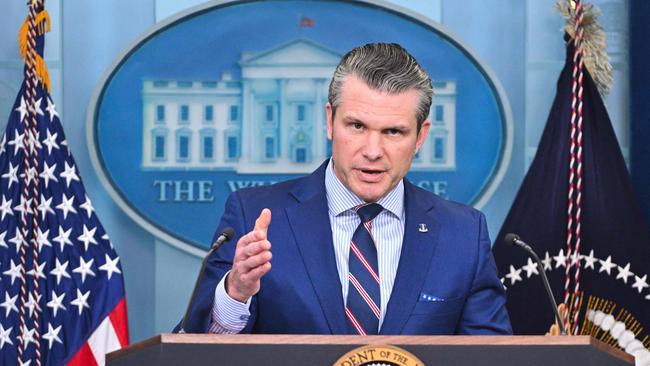Despite Trump and Hegseth’s claims, women have earned their place in the US military on merit

Some 45 years on, countless women have sacrificed their lives fighting for the US military. But President Donald Trump is already making changes that show sharp reversals to their gains in the armed forces. Since taking power, Trump has fired Commandant Linda Lee Fagan, the four-star leader of the US Coast Guard and the first woman to command a branch of the US services. Sources say Fagan’s use of DEI policies played a role. Last week, he signed an executive order ending DEI programs in the armed forces.
Trump’s appointment of Pete Hegseth as his Secretary of Defence also doesn’t bode well for women in the armed forces. In November 2024, he said “I’m straight up saying we should not have women in combat roles” as their presence “hasn’t made us more effective, hasn’t made us more lethal” and has “made fighting more complicated”.
When challenged on these comments, Hegseth has portrayed women’s participation in combat as being part of the same alleged DEI agenda that appears to have led to Fagan’s dismissal. In his book The War on Warriors he claims “they don’t care how many battles we lose as long as our dead are diverse”.
He told the Senate Armed Services Committee “I have never disparaged women serving in the military” and that “my comments are about having the same standards across the board”.
Hegseth’s remarks precisely echo the playbook militaries used when they were first trying to keep women out of combat – in the 1980s and ’90s. The problem is that physical standards are not an effective way to prevent women from fighting. For as long as they have been allowed to put themselves forward, countless women, including Kate Wilder, have passed the standards that have been set. These women were not given their spots, they earned them.
Hegseth’s opposition to women’s involvement in combat appears to be driven by a belief not only that women are less capable, but that they would erode the esprit de corps of the men they fight alongside. In Hegseth’s words, “any social tinkering with a team has the potential to destroy chemistry, especially when the goal of the team is to win”.
But this too is a tired argument. Similar claims were made about the unit cohesion impact of black soldiers when the US Army desegregated, and about gay soldiers prior to the 2000s. According to Hegseth, “black men earned the respect due to them for the work that they were able to accomplish”, but this would not be possible for women to achieve, because he rejects the idea that they can earn their places.
In fact, diversity initiatives didn’t break down the barriers keeping women out of combat. Warfare did. Wars like those in Iraq and Afghanistan did not have a neat separation between the front and the rear, meaning that any member of the military could end up fighting. The fact that women were decorated for valour in combat put the contradictions of the combat exclusion on full display.
Barring women from combat would require more than just slashing DEI programs – it would require keeping them away from conflict altogether.
There should be no doubt that the Trump/Hegseth attacks on DEI are having an impact on women in the services. After last week’s tragic air crash in Washington, DC, Trump immediately blamed (without evidence) diversity policies. A transgender pilot was then wrongly accused of being at the helm of the Black Hawk helicopter and received abuse online. The family of Rebecca Lobach – the female Army pilot who was killed in the helicopter – initially refused to release her name, a very rare act no doubt driven in part because of fear of backlash. The pilot’s family noted in a public statement that she had ranked in the top 20 per cent of cadets nationwide, and had logged hundreds of hours of flight time.
Women have shown they can meet required standards for combat. When they have not been allowed to try to meet these standards, they have excelled in the face of violence nonetheless. Today, we should keep the culture wars out of the real ones – because military readiness relies on men and women.
Dr Sarah Percy is the author of Forgotten Warriors: The Long History of Women in Combat (Basic Books: 2023) and Associate Professor of International Relations at the University of Queensland. Max Broad is a Research Associate at the Lowy Institute.



Kate Wilder was the first woman to complete the US Army Green Beret training school. As she put it, “I was the real McCoy. I was not the Ladies Auxiliary Special Forces”. Wilder finished the course in 1980, when women were still banned from combat in the US military and had only recently been allowed to use firearms. She’d spotted a loophole that would allow her to take the course, but she was never allowed to serve as a Green Beret, even though she demonstrated that she could meet the standards the military set.